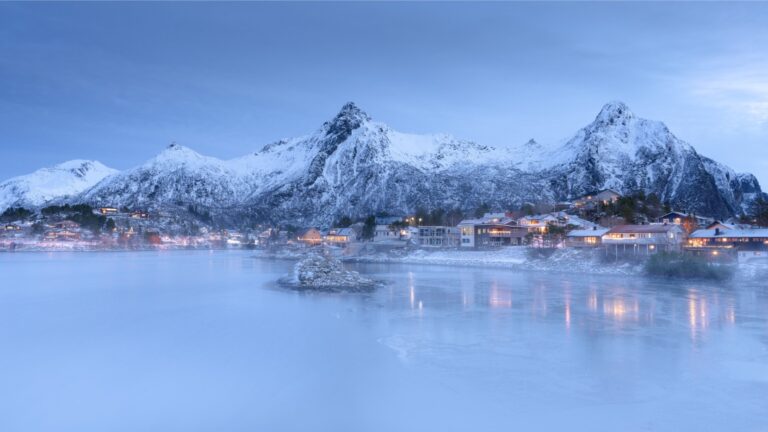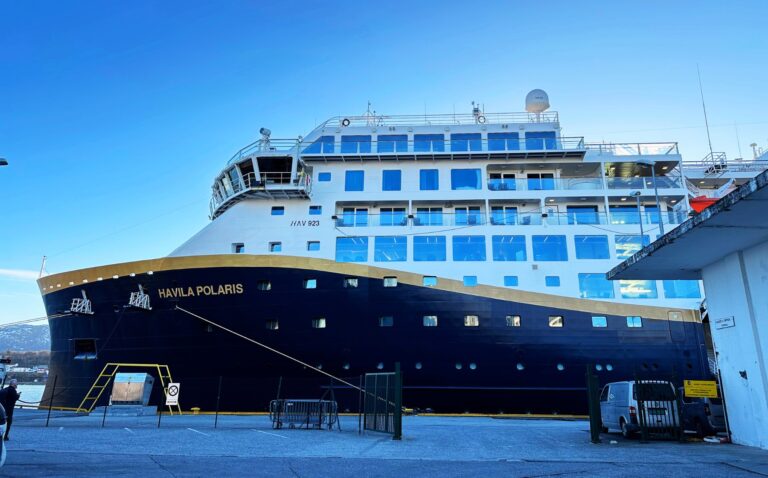Introducing a label of origin for products and services ‘made in Norway'. Discover what it is, why it exists, and which companies have already received it.
Norway is known for its stunning natural beauty, its commitment to sustainability, and its high-quality products and services. But how do consumers and businesses around the world know if something is truly Norwegian?

Enter the Made in Norway label, the official origin label administered by Innovation Norway.
This label is a registered trademark that assures products and services are authentically Norwegian and produced according to strict standards of responsibility and sustainability.
For businesses, the label is an important stamp of origin that proves commitment to ethical practices, environmental responsibility, and quality. For consumers, it’s a guarantee that they’re supporting sustainable and responsible Norwegian companies.
Why Origin Labels Matter
Norway has a global reputation for its pristine landscapes, high living standards, and forward-thinking approach to environmental and social responsibility.
The Made in Norway label was created to capitalise on this positive image, giving businesses that meet the criteria an edge in the international marketplace.
In a world where consumers are increasingly aware of where their products come from and how they’re made, origin labels are growing in importance. By carrying such a stamp, companies can differentiate themselves and appeal to customers looking for responsibly produced goods and services. Does it work? Only time will tell!
The labelling scheme is part of an export reform program, launched by then Minister of Industry Jan Christian Vestre in March 2022. The aim of the reform is to increase Norwegian exports that are not oil and gas by 50% by 2030.
Criteria for ‘Made in Norway'
Not just any company can use the Made in Norway label. Businesses must meet several strict requirements to ensure their products or services are truly Norwegian and ethically produced.
To be eligible, companies must:
- Ensure their product or service meets origin requirements. This means a significant portion of the product or service must be created in Norway.
- Conduct risk assessments to avoid adverse impacts on people, society, and the environment as a result of their operations.
- Implement an internal control system to manage any identified risks.
- Have ethical guidelines in place to ensure responsible business practices.
- Ensure their products or services contribute to advancing at least one of the UN Sustainable Development Goals (SDGs), while avoiding any significant harm in relation to the six environmental objectives outlined in the EU Taxonomy.
This makes the Made in Norway label more than just a mark of geographic origin. It signals that the company is committed to ethical and sustainable practices that benefit society and the planet.
Industry-Specific Requirements
Different industries have tailored criteria they must meet to use the label. Here’s how it breaks down:
- Nutrition (food, beverages, dietary supplements): At least 80% of the product’s weight must come from Norway, and a key processing step must occur within the country.
- Manufactured goods (furniture, textiles, sensors): At least 60% of the manufacturing and raw material costs must originate from Norway. Additionally, an essential manufacturing step must take place in Norway.
- Services (software, digital solutions): At least 60% of the costs for developing and delivering the service must come from Norway.
These criteria ensure that the Made in Norway label is only awarded to products and services that are predominantly Norwegian in their origins and operations.
Products & Services ‘Made in Norway'
There is already a long list of companies carrying the ‘Made in Norway' label. Here are some you might recognise:
Andøya Spaceport: Located above the Arctic Circle, Andøya Spaceport is Norway’s hub for launching satellites and conducting space research. Its new launch pad is completely made in Norway, as project manager Hans-Arne Eilertsen explained:
“The planning phase was done by Polarkonsult from Harstad, the retractable shelter has been built by Karstein Kristiansen, a local contractor, and the steerable launch rail is being built by Oil-Tech AS in Stavanger.”
Havila Voyages: Havila offers cruises and local transport along the Norwegian coastal route using state-of-the-art vessels featuring some of the largest battery packs at sea.

CEO Bent Martini says the company is “extremely proud” to be part of the scheme: “Our company is Norwegian owned with roots from decades of Norwegian business. The Havila Group has long contributed to value creation and jobs along the Norwegian coast, which has culminated in the Havila Voyages venture.”
“Every day on our route, we help increase business activity for our suppliers and the ports we visit. We serve locally sourced food onboard, where we work daily to reduce food waste as much as possible – because it's good for the environment and economically sensible,” he adds.
Hurtigruten Norway: A symbol of Norwegian seafaring heritage, Hurtigruten Norway is a famous brand operating on the 130-year Norwegian coastal route.
Jøtul: Jøtul has a long and proud history of producing cast iron stoves and fireplaces dating back to 1853. Over the years, Norwegian tradition and solid craftsmanship have been key in making Jøtul’s products the natural choice for customers worldwide.
Mack: Founded in 1877, Mack is one of the most famous breweries in Norway. Based in and around Tromsø, it is one of the world's northernmost commercial breweries.
Myken: Nestled on a tiny island off the coast of northern Norway, Myken is home to the world’s first Arctic distillery. Known for its whiskey and gin, Myken uses desalinated seawater and renewable energy alongside traditional distilling techniques.

